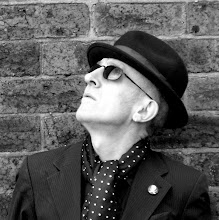A Valentine to the NHS
Sorry this is a day
late, NHS, I hope you didn’t think I’d forgotten? You have always
been there for me, supportive, kind, and with my best interests at
heart. I would, quite simply, be lost without you.
A few years ago, my
Glasgow neighbour, Doreen, came upstairs to show me the receipt her
mum had kept, for the costs of giving birth to her in hospital, in
the days before the NHS. We chuckled about whether her mother had had
value for money in her little daughter, and quietly marvelled at the
everyday, ongoing miracle that is a healthcare system where clinical
need is your passport in, and the people you pass in the street every
day, they pick up the tab. Willingly, gladly, and as a matter of
course.
Like most fortunate
and healthy people, I had years and years of never needing a doctor.
The only time I saw the inside of a hospital was as a visitor.
Then I gave birth to
my first baby, after a 5-hour labour. The midwife stayed beyond the
end of her shift to watch Thea come into the world, and to hold my hand
as the doctor said, urgently, “Wake up, baby! Come on, wake up!”
She did, thank God.
For David, the
midwife also stayed on. She became, in those fierce, short hours of pain
and terror and excitement, a cross between a best friend, a mother, and a superhero.
In the years of
infancy, like most anxious parents, I wanted the doctor, the
nurses and every available midwife to actually come and live with us,
so as to monitor every sneeze and gurgle for signs of danger.
Our local practice
in Glasgow, a busy, busy city surgery, with patients ranging from the
seriously affluent middle-classes, to recent immigrants with no
English and precious little money, was there for us every time.
Even when I arrived
with some health problem so minor it was almost off the scale, they
took the time to see me. No matter what. One time I said, “I think
I might be wasting your time here.” And the weary young doctor, run
off his feet, stopped to say, “I hope so.”
The NHS were there
for my Dad, who was diagnosed with terminal prostate cancer at the
age of 59, yet lived to be 73.
They talked him
through all his options, they tried to give him all the treatment he
asked for, they marvelled at his longevity.
Towards the end, the
doctors at the Hospice took over, re-calibrating his medications,
offering comfort. He wrote, in his diary, how the doctor held his
hand cupped in hers. How that kindness clung to him for days, like the fragrance of wild, white roses.
The NHS were there
when Malcolm broke his leg, when his bike skidded on a slick of
diesel in the middle of Sauchiehall Street. When Thea split her chin,
running in the playround. When David broke his wrist, falling off a
chair. Then, a few years later, when a wheel came spinning at
enormous speed off a crashing car on the Beauly Straight, and broke
his leg.
The NHS were there
when I walked in last year, with a squashy something expanding
beneath my ribcage, which turned out to be blood cancer. And ever
since. God, not half.
This week, I
travelled down to London for blood tests, a chest X-ray and an ECG,
at Kings College Hospital, in Denmark Hill.
If you believed the
anti-NHS hysteria, you’d expect English hospitals to be like the
one in Jacob’s Ladder, a nightmarish place of flickering lights and
bloody bandages, peopled by the clinically insane. But no, it is a
squeaky clean, busy, expert institution, with nurses and doctors
whose to-do lists stretch from here to Neptune and back again, yet
never drop a stitch, never mind a patient!
My consultant is
German, young, learned, optimistic. She told me, laughing, that I am
the only Scottish patient who will have the CAR-T drug Yescarta, as
NHS Scotland has opted for the other one, Kymriah. They are equally
good, I believe.
My nurse is Irish,
and full of energy and knowledge. And joy, actually. She is on top of
the whole CAR-T thing, which is gradually, in my head, coming in from
the realms of fantasy to the cosy fireside of reality.
I met a patient who
was having his CAR-T cells harvested, in the apheresis room. I almost
felt like asking for his autograph!
I’ll be doing what
he was doing, this time next week. It will, said the nurse, be
boring. It will be good if it’s boring. Bring a book, your brother,
snacks.
Walking home to
Ken’s that afternoon, the sun was out, the daffodils and crocuses
were fit to burst, and ambulances and staff came and went. An ancient man walked in, supported by a variety of fragile sticks. A young man walked out, his face split in a grin as wide as a watermelon, holding a tiny baby. Cradle to grave, mate.
Home again, I’m
tired, and my tumours are bulking up again, without the
cyclophosphamide to restrain them. That’s OK, I think. My treatment
has come in time, though it was a bit of a close-run thing. My
consultants in Raigmore knew this; that’s why they had me booked into
KCH milliseconds after the NHS Scotland funding came through.
See what I mean
about the NHS? One of the great loves of my life, all my life.
Sorry
I didn’t get you flowers.

